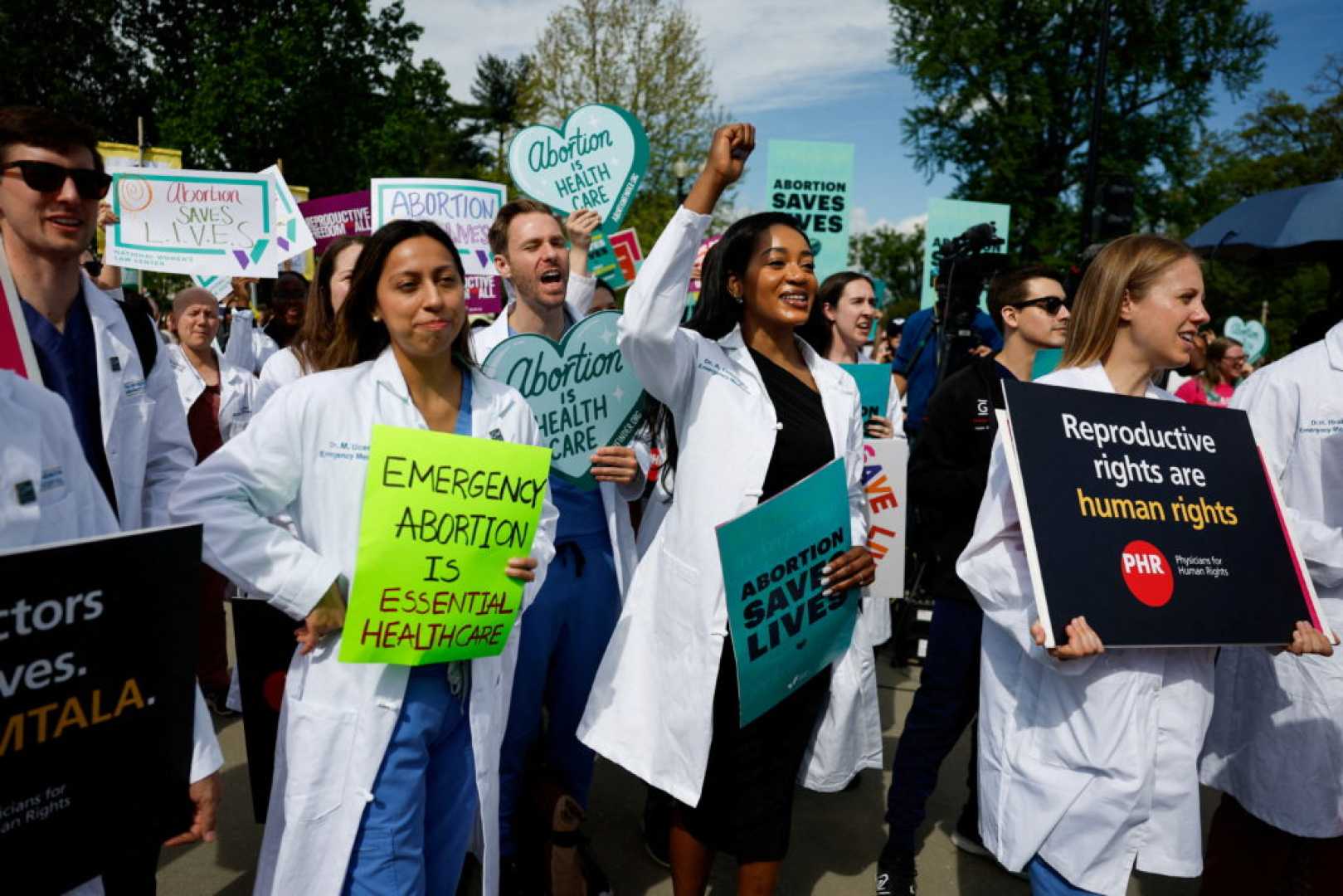Politics
Trump Drops High-Stakes Abortion Case, Igniting Controversy

WASHINGTON, D.C. – President Donald Trump has abruptly dropped a significant legal battle concerning emergency abortion rights in Idaho, signaling a shift in the federal government’s approach to abortion regulations.
The case was initially brought under the Biden administration, which argued that emergency-room doctors must provide abortion services to save the lives of pregnant women or to prevent serious health complications. This legal fight underscores the complexities of federal law versus state-level abortion bans following the U.S. Supreme Court‘s decision to overturn Roe v. Wade in 2022.
Trump’s administration recently filed to dismiss the lawsuit, just over a month after assuming office. This decision aligns with ongoing efforts to diminish federal protection for emergency abortions amid a broader conservative push to prioritize state regulations on the contentious issue.
The Biden administration had sued Idaho over a strict abortion law, which criminalizes performing or assisting in an abortion with penalties including imprisonment for up to five years. The DOJ asserted that Idaho’s law obstructed ER doctors from performing necessary procedures in medical emergencies, directly conflicting with federal laws mandating essential care.
Idaho Attorney General’s office countered that federal regulations also mandate consideration of the health of the unborn child, creating a legal tug-of-war. “Hospitals must balance both the health of the mother and the unborn child in their treatment decisions,” the AG’s office stated.
As a result of the previous legal battles, the Supreme Court took on the case but ruled narrowly, allowing hospitals discretion over emergency pregnancy terminations while leaving the critical question of federally mandated care unresolved.
The case relates to the Emergency Medical Treatment and Labor Act (EMTALA), a 1986 law requiring emergency rooms to provide medical exams and stabilize patients before discharge or transfer, applicable to nearly all ERs receiving Medicare funding. The law’s interpretation has come under scrutiny since the reversal of Roe v. Wade, with numerous accounts emerging of pregnant women being denied necessary abortions, leading to dangerous delays in care.
Despite Trump’s decision to abandon the Idaho case, the rationale remains unclear. His DOJ motion failed to clarify the reasoning behind dropping the lawsuit. Analysts point out that Trump may be aligning new policy directions with the conservative agenda outlined in Project 2025, which advocates for substantial changes to perceived “pro-abortion” federal interpretations.
“This dismissal underscores the administration’s intent to advance an anti-abortion agenda rather than safeguard the well-being of pregnant women facing medical crises,” said Brittany Fonteno, president and CEO of the National Abortion Federation.
The responses from the abortion rights community reflect concerns over the implications of this withdrawal. Activists fear that abandoning legal protections at the federal level might jeopardize the health and safety of women across the nation.
In light of Trump’s decision regarding the Idaho lawsuit, scrutiny on federal abortion policy continues. For instance, a recent Supreme Court ruling determined that the federal government cannot compel hospitals to carry out pregnancy terminations in accordance with Texas’ abortion laws, thus indicating a trend of limiting federal enforcement in contentious state matters.
As Trump potentially re-evaluates the longstanding legal battle over telehealth access to mifepristone, the abortion pill, there is widespread concern about the future accessibility of abortion services nationally.












